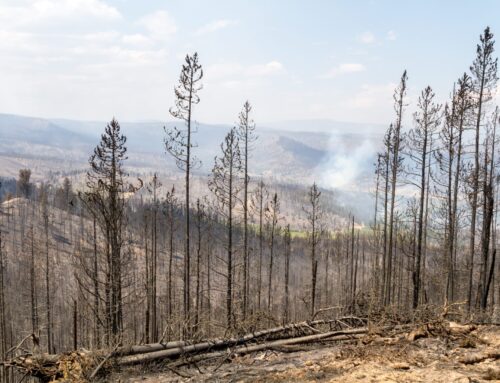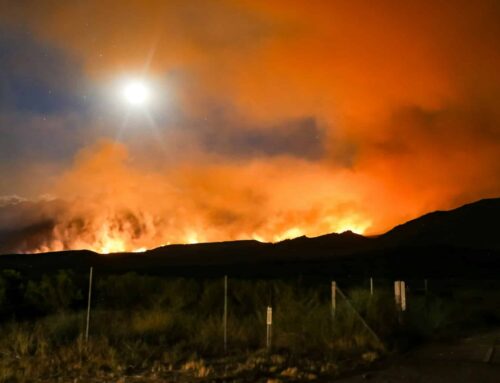Tribal leaders, fishermen and environmentalists from Alaska will testify before Congress on Wednesday in an effort to save America’s biggest national forest – the latest battle against the Trump administration’s assault on environmental protections.
The Tongass national forest, one of the world’s last intact temperate rainforests which plays a crucial role in fighting the climate crisis, is under threat of logging as Alaska seeks exemption from the Roadless Rule, which protects millions of acres of pristine forests across the US. The Tongass is considered the “crown jewel” of the national forest system, sequestering huge amounts of carbon dioxide to keep the greenhouse gas out of the atmosphere.
The Roadless Rule prevents mass clearcutting of trees in undeveloped forested areas and is seen as one of the most broadly supported environmental protections in the US.
Donald Trump has reportedly intervened in the Alaska case, raising fears that other states with strong extractive industry lobbying machines will seek to fast-track similar exemptions without properly consulting communities on the impact that felling trees in wilderness areas will have.
“There are indications that many other states are watching to see what happens with Alaska, which has shown us how this administration is blindly following whatever industry, corporations and lobbyists want without thinking about future generations,” said Blaine Miller-McFeeley, senior legislative representative at the legal not-for-profit Earthjustice.
Wednesday’s hearing by the natural resources subcommittee on national parks, forests and public land (NPFPL) will hear evidence on the potentially devastating consequences for the Tongass and its people.
“We’ve been here for thousands of years. These are our lands and we depend on the Tongass for food security,” Joel Jackson, 63, president of the organized village of Kake, said.
“Tribes everywhere are worried and watching very closely at what they’re trying to do in Alaska,” added Jackson, who will testify.
“Tourism and commercial fishing run this region economically, not timber, which is a pathetically small sector,” said Lance Preston, 47, a fisherman and board member of the Seafood Producers Cooperative in Sitka. “The salmon already faces challenges from ocean acidification and warming … A very small minority stands to gain economically by being very irresponsible.”
Stretching 16m acres over 500 miles, the Tongass is unique in its size and biodiversity, with thousands of islands, waterways, glacial fjords and green valleys flanked by rugged mountains and sprawling forests of old-growth cedar, spruce and hemlock trees.
It is home to myriad species including wild Pacific salmon, brown bears, wolves, Sitka black-tailed deer and bald eagles, and attracts more than a million visitors annually.
The Roadless Rule was adopted during the Clinton administration after an extensive public consultation, in which 96% of the 1 million participants nationwide supported protection for unspoiled forests.
Since then Alaska has fought the regulation, but its efforts to roll back the protection have been repeatedly thwarted in Congress and the courts.
Then, the state’s petition for an exemption was granted by the Department of Agriculture in August 2018 without consulting any tribal nations.
The state was given $2m in federal funds by the Forest Service (FS) to help facilitate dialogue about six potential outcomes ranging from no change to full exemption.
At least 10% of this money was given to the Alaska Forest Association – a timber industry group – to aid their participation in the process, according to documents obtained by KTOO.
The Angoon Cooperative Association, Central Council of Tlingit and Haida Indian Tribes, Hoonah Indian Association, Hydaburg Cooperative Association, organized village of Kake and organized village of Kasaan – which all have roots in the Tongass dating back thousands of years – were belatedly offered a seat at the table as “cooperating agencies” alongside the state in the review process.
The tribes say they were not given any financial support leaving them scrambling to make sense of complex long document. Their requests for extensions were repeatedly denied.
In June, Trump held a private meeting with Alaska’s governor, Mike Dunleavy, on Air Force One. Shortly after, Trump instructed the agriculture secretary, Sonny Perdue, to grant a full exemption, according to the Washington Post.
Last month, a full exemption, opening the door for the logging industry to bulldoze roads and clearcut trees over 9m acres, was recommended in the draft Environmental Impact Statement (EIS).
In response, tribal leaders wrote to Perdue condemning the federal government’s rushed and unfair handling of the proposed exemption, which they said “represents the most controversial and potentially destructive assault on our way of life to date”.
In the Tongass, the tribes mostly live on isolated islands, relying on salmon fishing, deer, moose, grouse and berries. This traditional diet remains extremely important amid rising food prices and cuts to ferry services.
“All communities deserve to have access to the resources they rely on for subsistence, but this administration has gone out of its way to change the rules for their friends who seek to profit off those resources,” said the New Mexico congresswoman Deb Haaland, chair of the NPFPL.
In May, fellow committee member and Arizona congressman Ruben Gallego, and the Washington senator Maria Cantwell, senior member of the Senate energy and natural resources committee, introduced legislation to codify the Roadless Rule in order to permanently protect millions of acres of pristine national forests.
The 2019 Roadless Area Conservation Act would prevent state exemptions to the rule, which nationwide protects habitats for 1,600 threatened or endangered species, reduces wildfire risk and supplies clean drinking water to 60 million Americans and 350 communities across the US.
“The administration continues to try to solve 21st-century problems with 19th-century thinking, trying to extract a relatively small amount from our few remaining pristine natural areas,” said Cantwell.
Nationally, public support for the Roadless Rule remains strong: a Pew poll in March of this year found three-quarters of respondents want protections to remain in place.
Locally, the vast majority of south-east Alaska’s 32 native and white communities also support the current roadless protection.
But the Alaska congressman Don Young, the Republican leader of the NPFPL, believes the Roadless Rule has been a “disaster” for his home state. He has been working closely with Trump, senior White House staff and the rest of the Alaska delegation to secure an exemption.
“Congressman Young believes an exemption is needed to not only boost the economy of south-east Alaska, but to bolster the long-term health of the Tongass national forest by promoting active resource management,” a spokesperson said.
The rule already allows for individual exemptions: in Alaska, every single request for the Tongass to date – more than 50 – for projects such as mines and dams has been approved.
Dunleavy’s office did not respond to requests for comment, but has previously blamed the rule for destroying logging and thousands of jobs.
The timber industry contributes less than 1% to the south-east Alaska economy, compared with 25% by the fishing and tourism industries combined.
Tongass waterways produce 80% of the commercial salmon annually harvested from south-east Alaska, valued at $60m. The FS has lost almost $600m on Tongass timber sales over the last 20 years, according to Taxpayers for Common Sense.
The FS is legally obliged to take into account public opinion before making its final decision, which is expected in mid-2020.
If it is fully repealed as Alaskan Republicans want, 5m acres of the Chugach national forest, which is second only to the Tongass in roadless acreage, could also be threatened, according to the Southeast Alaska Conservation Council.
In both forests, vital food sources and Native cultural and sacred sites are at risk.
“If we didn’t have wild food to eat, we would be starving right now. We are living in virtual poverty because of the systems of government,” said Wanda Culp, a Tlingit advocate for the Tongass in Hoonah. “The Roadless Rule is just the latest example of how we jump through hoops but get nowhere – there is no due process for indigenous communities. We are nuisance communities standing in the way of industry profits.”











Get Social